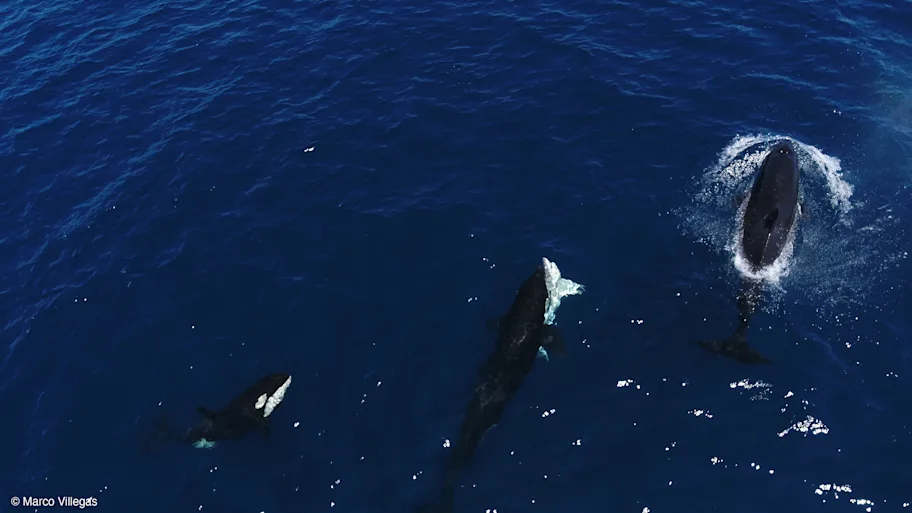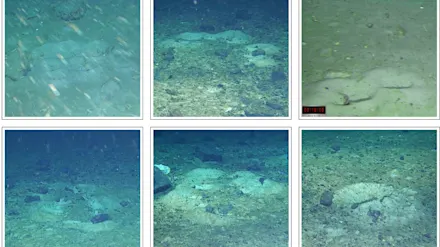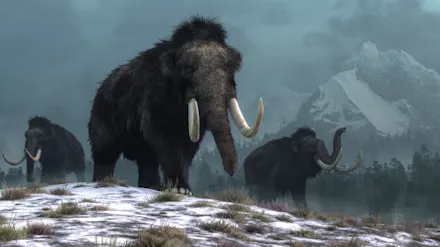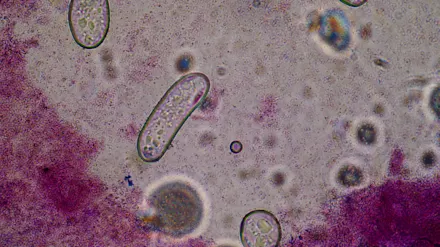
Featured news
Orcas seen killing young great white sharks by flipping them upside-down
Specialist shark-hunting pod paralyzes young white sharks to eat their energy-rich livers, taking advantage of local shark nursery


Featured news
Specialist shark-hunting pod paralyzes young white sharks to eat their energy-rich livers, taking advantage of local shark nursery

Featured news
In a remote part of Antarctica's Western Weddell Sea, an area once hidden beneath a 200-metre-thick ice shelf, scientists have uncovered a new and unusual phenomena: extensive maintained fish nesting grounds arranged in patterns.

Featured news
Dr Maria Santacà describes how not only how fish and birds perceive their worlds, but also how ecological pressures shape the evolution of perception.

Featured news
Children with multi-metastatic Ewing’s sarcoma face very poor survival rates — now an early trial of pazopanib shows promise for helping them live longer, healthier lives




Health
Over 800 million people globally have a type of diabetes, with numbers steadily rising. November 14 marks World Diabetes Day. We’re highlighting five recently published articles on aging and diabetes.

Health
As AI—and the ethical debate surrounding it—accelerates, scientists argue that understanding consciousness is now more urgent than ever.

Health
Children with multi-metastatic Ewing’s sarcoma face very poor survival rates — now an early trial of pazopanib shows promise for helping them live longer, healthier lives

Health
Researchers used data from 123 countries to identify a ‘happiness threshold’ beyond which nations’ non-communicable disease mortality rate decreases, making happiness a public health resource

Neuroscience
Dr Maria Santacà describes how not only how fish and birds perceive their worlds, but also how ecological pressures shape the evolution of perception.

Neuroscience
Scientists find that words you’ve been told to recall are better remembered than words with negative emotional connotations — but surprisingly, sleeping doesn’t help.

Neuroscience
Listening to joyful music helped study participants with motion sickness recover better than other participants — while sad music helped less than doing nothing.

Neuroscience
In well-designed gardens, our gaze shifts quicker and more often. Researchers believe this could be key to understanding the relaxing effects gardens can have on viewers.

Environment
Scientists studying the devastating Lāhainā, Maui fires of August 2023 found that deaths were two-thirds higher than expected that month — and 367% higher during the most intense week of the blaze.

Environment
Stable isotope analysis can tell apart ivory from mammoths dug up from the permafrost and modern elephants, closing a loophole for selling elephant ivory

Environment
Scientists studying the impact of solar power on local neighborhoods find that most people living close to large-scale solar plants wouldn’t mind if a new plant was built nearby.

Environment
First video footage shows impacts of anchor and chain damage caused by cruise, research, fishing, and private vessels on Antarctic sea floor and animals, highlighting critically understudied conservation issue.

Psychology
Scientists find that people mostly avoid social media ads when they see them, but many ads blend in seamlessly.

Psychology
Physiological rhythms could explain why Italian university students were more likely to fail exams early or late in the day.

Psychology
Study participants asked to choose whether to empathize with or describe people preferred to empathize with groups, despite finding it difficult and distressing.

Psychology
A researcher put physical distance between people and their phones and found that our devices may not be the cause of our distraction – it’s what we do with them.

Space sciences and astronomy
Guest editorial by Prof Heidi Newberg, an astrophysicist at Rensselaer Polytechnic Institute and author of a new Frontiers in Astronomy and Space Sciences article

Space sciences and astronomy
Scientists successfully identify microbe fossils in terrestrial rocks like those found on Mars, opening up the possibility of searching for fossils on the Red Planet.

Space sciences and astronomy
Scientists explored microbial movement as a possible biosignature to detect life on Mars and beyond, cheaper and faster than ever before.

Space sciences and astronomy
Space belongs to no-one, yet many nations and private entities now plan to lay their claim on its resources. In a recent Frontiers in Space Technologies article, Nishith Mishra, Martina Elia Vitoloni and Dr Joseph Pelton shared their thoughts about how plans to exploit the ocean floors could impact the way resources from space are used and managed.
Get the latest research updates, subscribe to our newsletter